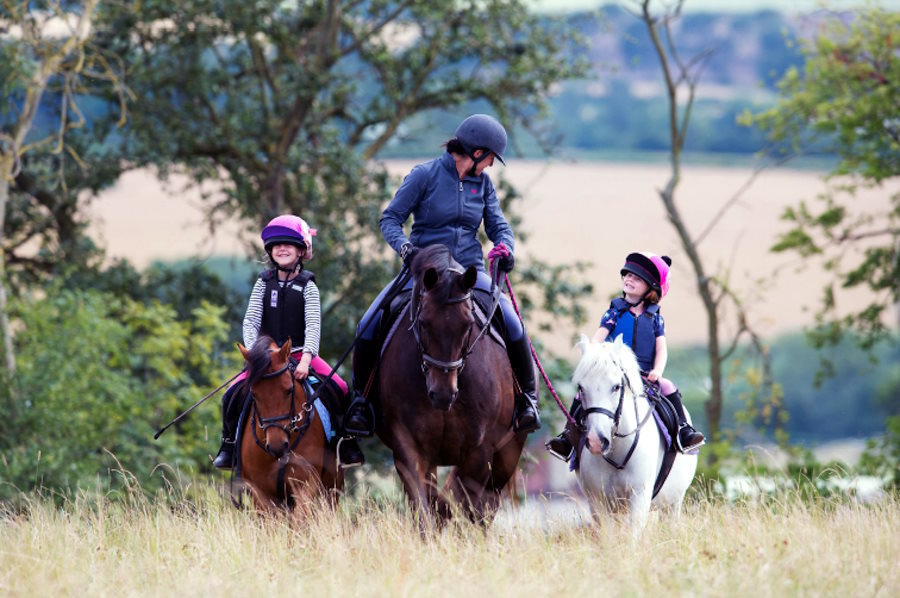725 views
Shaping the Future of Equestrianism: Key Insights from British Equestrian’s 2024 State of the Nation
British Equestrian has released its much-anticipated State of the Nation 2024 report, offering a revealing look at the UK’s equestrian industry — from grassroots riding schools to national governance, and everything in between.
📈 Growth Amidst Challenge
The sport continues to grow, with federation memberships up 11.7% and nearly 2 million followers engaging on social platforms. Participation is returning to pre-pandemic levels, but rising costs are threatening both rider access and equine welfare.
🏫 Riding Schools in Focus
An unprecedented audit of over 1,000 riding schools found most are small operations with under 20 horses, relying on volunteers. Encouragingly, more than half expressed a desire to grow, highlighting an opportunity for targeted support and funding.
🌍 The Climate Conversation
Environmental challenges loom large, with BEF's strategy urging action on climate resilience, carbon tracking, and sustainable practices across the industry.
💙 Why Equestrianism Matters
Research underscores the wide-ranging benefits of equestrian activity — from improved physical and mental health to personal development and community cohesion. Horse riding has proven therapeutic value, especially for young people, veterans, and individuals with disabilities.
⚠️ Urgent Welfare & Workforce Issues
Surveys from NEWC and the British Grooms Association shine a light on serious welfare and employment concerns — from financial pressure on owners to low pay, burnout, and even harassment among grooms. Calls for reform, regulation, and employer education are growing louder.
🤝 Building Public Trust
Public perception matters. Research reveals concerns around elitism, transparency, and welfare. The industry is being urged to lead with openness, inclusivity, and ethical practices to preserve its “social licence” to operate.
🧭 What’s Next?
In 2025, British Equestrian will focus on:
- Quantifying the social value of equestrian activities
- Workforce development & diversity
- Enhancing equine welfare
- Strengthening the resilience of riding establishments
This report is a rallying cry for the equestrian community to work together — addressing challenges, seizing opportunities, and securing a stronger future for our sport.
Key Findings:
📊 Participation & Memberships
- Federation memberships rose by 11.7%.
- Over 255,000 participants engaged in equestrian activity.
- Social media followers reached nearly 2 million, with a 13% increase in engagement.
🐎 Riding Schools
- 1,028 riding schools identified; 530 (52%) were interviewed.
- Most are sole traders with <20>
- Weekly average: 94 customers per riding school.
- 57% of riding schools want to grow but face financial and staffing pressures.
🌱 Environmental Sustainability
- The industry is vulnerable to climate change and biodiversity loss.
- Recommendations include creating a carbon calculator, setting sustainability goals, and forming an environmental board.
💡 Social Value
- Riding improves mental and physical health, confidence, employability, and community connections.
- Evidence supports equine-assisted activities for PTSD, disabilities, and emotional wellbeing.
- However, more research is needed to quantify these benefits financially.
💸 Cost of Living & Welfare
- 2024 NEWC survey shows horse owners, even with full-time jobs, are financially strained.
- Charities and rescue centres are seeing rising demand and reduced donations.
🧠 Workforce & Employment
- Many grooms experience mental health challenges, low pay, bullying, and poor employment conditions.
- 64% lack contracts; 46% are paid below the minimum wage.
- Equestrian Employers Association and British Grooms Association call for reform and education.
🧾 Public Perception & Trust
- A Voconiq study shows moderate public trust in equestrian sport.
- Key concerns: welfare, elitism, and transparency.
- Opportunity to improve trust through inclusivity, better welfare standards, and community outreach.
📈 Broader Sport Sector Trends
- Equestrianism holds its ground with ~285,600 adults and ~198,700 young people participating regularly.
- DCMS reports the wider sports sector generated £99.6B in value, with £107B in social value.
📌 Read the full report: britishequestrian.org.uk




0 Comments